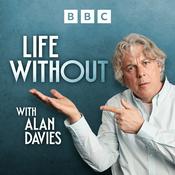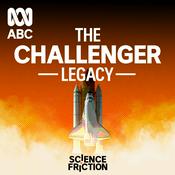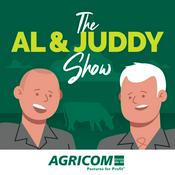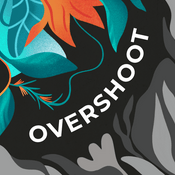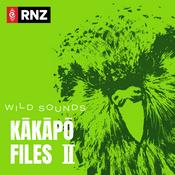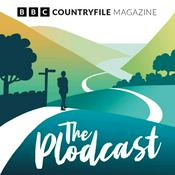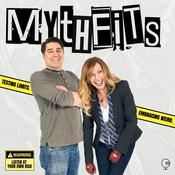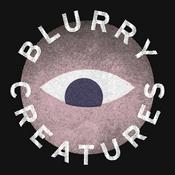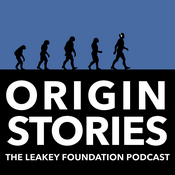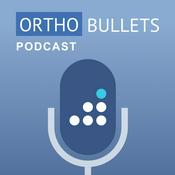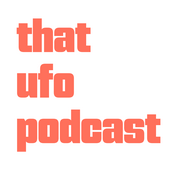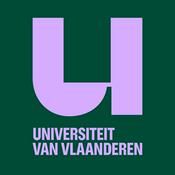359 episodes
- What if we stopped telling women how to stay safe, and started asking why violence against them keeps happening in the first place? On this episode, I’m joined for a second time, by Amy Watson, the founder of social enterprise HASSL. She’s trying to tackle violence against women and girls at its root. Not with another awareness campaign or safety app. But by building a global movement designed to shift responsibility away from women, and onto society.
Overview
When Amy first joined the podcast a year ago, we discussed the scale and reality of violence against women. A year on, she returns to talk about what it actually takes to tackle it.
In just twelve months, her social enterprise HASSL has grown into a global prevention movement: more than half a million followers, thousands of volunteers across over 120 countries, and campaigns reaching millions of people organically.
But this isn’t just a story about social media growth. It’s about culture change. In an extended and wide-ranging disucssion, we explore why laws alone don’t solve systemic problems, why “stay safe” advice can unintentionally reinforce the wrong narrative, and what happens when you apply entrepreneurial thinking to one of society’s most entrenched issues.
This is a conversation about scale, backlash, risk and moral ambition, and about what it means to build something that refuses to compromise.
Guest Bio - Amy Watson
Amy is the founder of HASSL, a global social enterprise tackling harassment at the root.
HASSL focuses on prevention — shifting responsibility for violence away from women as individuals and onto the cultural and systemic factors that enable harm. Combining research, education and partnerships, it aims to create scalable, long-term change rather than short-term fixes.
In just over a year, HASSL has grown into a global movement with hundreds of thousands of followers and volunteers across more than 120 countries.
Amy’s work sits at the intersection of social justice and entrepreneurship, applying business thinking to one of society’s most entrenched problems.
AI-Generated Timestamped Summary
00:00 – Intro: From Problem to Action
Christian frames this follow-up as a shift from discussing violence against women to exploring what it takes to tackle it in practice.
02:00 – What HASSL Stands For
Amy explains HASSL’s prevention-first approach: shifting responsibility away from women and onto culture, systems and male behaviour.
05:00 – Scaling a Social Enterprise
Rapid global growth, research-driven strategy, sustainable funding streams and a structured five-stage plan.
08:30 – Education & Engaging Men
Launch of free education resources, bystander tools and conversation frameworks designed to invite men into the solution.
16:00 – Entrepreneurship, Risk & Moral Ambition
Applying startup thinking to social change; sacrificing financial ambition for impact; long-term vision over quick wins.
35:00 – Values, Independence & Leadership
Why Amy avoids outside investment, refuses to compromise on inclusivity, and builds operational resilience into the organisation.
58:30 – Backlash & Online Abuse T
rolling, hate messages and the deliberate disruption of a webinar — and what that reveals about cultural normalisation.
01:05:00 – Using Criticism as Leverage
Turning recurring myths (“false accusations”, “what about men?”) into educational opportunities and narrative shifts.
01:21:00 – Barriers to Reporting Why speaking out rarely benefits women; the structural and social costs involved.
01:37:00 – Building a Movement How listeners can engage — and why lasting change requires persistence, scale and collective responsibility.
Links
Amy’s previous appearance on the show - https://www.humanriskpodcast.com/amy-watson-on-violence-against-women/
HASSL - hassl.uk
Moral Ambition by Rutger Bregman - https://www.moralambition.org/book - Who determines what 'good' Compliance actually looks like? The obvious answer is regulators (and in some jurisdictions) prosecutors. But what if it were the regulated Firms themselves? That's the idea behind purpose-driven compliance, which I'm exploring on this episode.
Episode Summary
To explore this, I'm joined by Veronica Root Martinez, Professor of Law at Duke University School of Law, to explore a deceptively simple but unsettling idea: 100% compliance is impossible. While we often behave as though perfect compliance is the goal — and in some safety-critical domains it must be — most organisational compliance involves humans. And humans make mistakes. Things get missed. Context changes. Stuff goes wrong.
So if perfection isn’t realistic, the real question becomes: how do organisations decide what really matters? The traditional answer has been to look outward — to regulators, enforcement authorities, and in some jurisdictions (particularly the US), prosecutors. Their priorities, expressed through sentencing guidelines, enforcement actions, and settlements, end up defining what “good” compliance looks like.
Veronica challenges that logic. She argues that this gets things the wrong way round. Instead of letting enforcement priorities dictate behaviour, she makes the case for purpose-driven compliance — where organisations set their own priorities based on their purpose, values, and actual risks, rather than chasing shifting regulatory expectations. Along the way, the conversation explores culture, human judgment, psychological safety, technology, experimentation, and why “best practice” can sometimes make things worse rather than better.
This episode is for anyone who writes rules, enforces them — or simply has to live under them.
Guest Biography
Veronica Root Martinez is a Professor of Law at Duke University School of Law, where she researches corporate compliance, ethics, and organisational culture. Her work on purpose-driven compliance challenges enforcement-led models and explores how organisations can set priorities based on their own purpose, values, and risks.
Before entering academia, Veronica practised as an associate at a large law firm in Washington, DC, where she worked on regulatory and white-collar matters — experience that strongly informs the practical orientation of her research.
Links
Professor Veronica Root Martinez – Faculty Profile
https://law.duke.edu/fac/martinez
Veronica on LinkedIn
https://www.linkedin.com/in/veronica-root-martinez/
Purpose-Driven Compliance (paper discussed in the episode)
https://papers.ssrn.com/sol3/papers.cfm?abstract_id=6078766
AI-Generated Timestamped Summary
00:00 – 02:00 | “Because they said so”
Christian reframes compliance as a universal human experience — not just a professional discipline — and introduces the problem of rules justified solely by regulatory expectation.
02:00 – 05:30 | Why 100% compliance is impossible
Veronica explains why modern organisations cannot realistically achieve perfect compliance when humans are involved — and why pretending otherwise creates problems.
05:30 – 10:30 | Tolerated misconduct and cultural drift
How allowing “small” rule-breaking can escalate into bigger issues, drawing on behavioural ethics and real-world corporate failures.
10:30 – 14:30 | Risk, prioritisation, and what really matters
A discussion of risk-based thinking, irrecoverable vs recoverable errors, and why organisations — not regulators — are best placed to set priorities.
14:30 – 18:30 | Enforcement swings and resilience
Why compliance programmes built around enforcement trends are fragile, expensive, and reactive — and how purpose-driven approaches create stability. 18:30 – 23:30 | Innovation, uncertainty, and guardrails
Why regulators are always behind innovation — and how values-based guardrails help employees make decisions in uncharted territory.
23:30 – 30:30 | Technology, AI, and the human in the loop
The limits of automation, the danger of over-reliance on tech, and why human judgment remains essential.
30:30 – 36:30 | Rules, loopholes, and malicious compliance
How overly detailed rulebooks create loopholes — and why purpose and principles offer a better basis for accountability.
36:30 – 40:30 | The Costco example
A powerful illustration of simplicity: four ethical principles that employees can actually understand and use.
40:30 – 45:30 | Training, regulators, and unintended consequences
Why blanket training requirements often miss the mark — and how enforcement agreements can accidentally undermine effectiveness.
45:30 – 52:30 | Measuring culture and compliance effectiveness
Moving beyond counting inputs to assessing outputs, including psychological safety, Speak Up systems, and cultural indicators.
52:30 – 57:30 | Experimentation and learning
Why failed interventions aren’t failure — they’re information — and why compliance should be treated as an evolving experiment.
57:30 – End | Reclaiming responsibility
A closing reflection on extrinsic motivation, “because I said so,” and why purpose-driven compliance offers a more human, defensible, and sustainable way forward. - As Artificial Intelligence (AI) gets smarter and tkaes over more tasks, what happens to human dynamics like trust, transparency, leadership and empathy. How can humans and machines wowrk togehter effectively? And how can leaders lead in this new world?
Episode Summary
AI is often discussed as a technical challenge, but the more interesting question is how it impacts humans and how we will interface with them. As AI becomes part of the world we’re navigating, it raises deeply human questions about trust, transparency, confidence, and how we relate to systems we don’t fully understand.
On this episode, I'm joined by Professor Tina Weisser, a leading thinker on human–AI collaboration, systems thinking, and organisational behaviour under uncertainty. Together, we explore why trust isn’t something we can engineer into technology, why uncertainty isn’t a problem to be eliminated, and what AI may be revealing about human behaviour, rather than the other way around. This conversation is less about what AI can do, and more about what it does to us.
Guest Profile
Professor Tina Weisser is a Professor at the Munich University of Applied Sciences and a member of the Munich Center for Digital Sciences and Artificial Intelligence (MUC-DAI). Her work focuses on human–AI collaboration, systems thinking, service design, and how organisations adapt under conditions of complexity and uncertainty.
AI-Generated Timestamp Summary
00:00 – AI as a human problem, not a technical one
04:00 – Tina’s path into human–AI collaboration
12:00 – Why uncertainty is unavoidable (and necessary)
18:00 – We haven’t mastered work — and now we’re adding AI
23:00 – From tools to agents: why this feels different
29:00 – Trusting actions, not facts
35:00 – Ethics, fear, and human inconsistency
42:00 – What this means for students, skills, and learning
49:00 – “Let AI handle the data — humans handle the room”
55:00 – Being right too early doesn’t help
1:01:00 – AI as a mirror of humanity
Episode Links
Tina's LinkedIn profile - https://www.linkedin.com/in/tinaweisser/
Tina's website - www.tinaweisser.com
Munich Center for Digital Sciences & AI (MUC-DAI) - http://mucdai.hm.edu - What lies behind Romance Fraud? Romance fraud is one of the fastest-growing forms of fraud worldwide, and one of the most emotionally devastating. It’s also one of the most misunderstood.
On this episode, I’m speaking to Becky Holmes, author of the bestselling book Keanu Reeves Is Not in Love With You. Becky didn’t become interested in romance fraud through victimhood or research. She stumbled into it during the pandemic after being approached by scammers online — and instead of ignoring them, she decided to wind them up.
What began as a joke — sending absurd messages, inventing ridiculous scenarios, and pushing scam scripts to breaking point — turned into something much more serious. Through humour, Becky uncovered the psychological mechanics of romance fraud: how trust is built, how isolation and gaslighting work, and why believing you’re “too smart to fall for it” is often the most dangerous belief of all.
In this conversation, we explore why laughing at scammers is not the same as blaming victims, why romance fraud closely mirrors patterns seen in abusive relationships, and why shame — not stupidity — keeps people trapped. We also talk about humour as a gateway to learning, the limits of victim-focused storytelling, and the uncomfortable truth that none of us are immune. This is a funny conversation in places. And then it isn’t.
This is not the first time the Human Risk Podcast has explored romance fraud. On a previous episode, I spoke with Anna Rowe, a victim of romance fraud, about the profound emotional and psychological impact of being deceived by someone you believed you loved.
In this episode, we discuss:
Why romance fraud is a psychological scam, not a technical one
How humour can expose manipulation without mocking victims
The striking parallels between romance fraud and abusive relationships
Isolation, gaslighting, and shame as tools of control
Why “it would never happen to me” is such a dangerous belief
The role of AI, deepfakes, and evolving scam tactics
Why fraud literacy matters — and why people don’t seek it out until it’s too late
The emotional cost of online exposure and harassment
What institutions, platforms, and society still get wrong about fraud
Guest Profile
Becky Holmes is an author, speaker, and writer specialising in fraud, online manipulation, and digital harm. Her first book, Keanu Reeves Is Not in Love With You, explores the world of romance fraud through humour, storytelling, and lived experience.
Her second book, The Future of Fraud, examines how scams are evolving in a world shaped by AI and digital identity.
Links and resources
Becky’s first book Keanu Reeves Is Not in Love With You - https://share.google/fKQ6qCL1l8Ygl1ey2
The Future of Fraud her second (out April 2026) - https://share.google/fKQ6qCL1l8Ygl1ey2
Becky on LinkedIn: https://www.linkedin.com/in/beckyholmeshatesspinach/
Becky on Instagram: Becky Holmes (@deathtospinach)
Becky on Twitter/X: https://x.com/deathtospinach?
Becky’s book agent profile: https://www.curtisbrown.co.uk/client/becky-holmes
Previous Human Risk Podcast episode with Anna Rowe on being a victim of romance fraud: https://www.humanriskpodcast.com/anna-rowe-on-romance-scams/
AI-Generated Timestamped Summary
00:00 – Why romance fraud matters
Christian explains why the podcast is returning to romance fraud, linking this episode to an earlier conversation with victim Anna Rowe (linked in the show notes).
02:00 – How Becky Holmes got into romance fraud
Becky describes how being approached by scammers during lockdown — and deciding to wind them up — accidentally turned into deep expertise.
05:00 – When jokes expose the script
Absurd replies, fake crime scenes, and the moment Becky realised scammers weren’t reading messages, just following scripts.
09:00 – Laughing at scammers, not victims
Why humour can highlight manipulation without blaming those who fall victim — and how the book shifts from comedy to something much darker.
14:00 – Romance fraud as psychological abuse
The parallels with abusive relationships: isolation, gaslighting, shame, and why people stay, return, or fall again.
21:00 – “It would never happen to me”
Why believing you’re too smart to fall for romance fraud is often the biggest risk of all.
28:00 – What the media gets wrong
Victim-focused storytelling, ignored systems, and why AI, deepfakes, and scam scripts matter more than headlines.
36:00 – Fraud literacy and prevention
Why people don’t seek out information about fraud until it’s too late — and how humour can be a gateway to awareness.
45:00 – The personal cost of online exposure
Online harassment, cyberflashing, and the emotional toll of spending years inside the systems you’re critiquing.
55:00 – What’s next for Becky
Upcoming books, speaking work, and where to find her online. - Why do we struggle to talk about grief? Why that matters and what we can do about it, is the subject of this episode.
Summary
Grief is something almost all of us will experience, and yet something we still struggle to talk about openly. Not because it’s rare, but because it makes us uncomfortable. We lack a shared language for it, feel uneasy about how long it lasts, and often don’t know how to sit with people who don’t simply “move on”.
On this episode, I'm joined by Amy Kean, founder of Good Shout, for a deeply human conversation about grief, work, identity, and what it really means to give people space to be themselves.
Amy has been on the podcast before. Since first encountering her work, I have been consistently inspired by her willingness to be unashamedly herself: thoughtful, curious, and open about experiences many of us keep hidden. When she recently shared reflections on grief on LinkedIn, it sparked a desire to invite her back; not for a tightly structured discussion, but for a conversation that could explore the wider dynamics around loss.
What follows is an unusual episode. It begins with grief, but moves into related territory: compassionate leave versus compassionate return, what actually helps when someone is struggling, why workplaces are often so bad at dealing with loss, and why talking about difficult things might be one of the most important human skills we have.
Rather than offering neat frameworks or tidy conclusions, this conversation creates space; for reflection, for discomfort, and for honesty.
If you’ve experienced loss, this episode may offer comfort or recognition. If you haven’t, it may give you insight into how to show up better for others when the time comes. And above all, it helps normalise the idea that grief is not something to be hidden or hurried past, but something we should be able to talk about.
The episode is dedicated to Amy’s dad, Lord Terence Kean.
Relevant Links
Good Shout, Amy's company — https://goodshoutcommunity.com/
Amy on LinkedIn — https://www.linkedin.com/in/amycharlottekean/
Amy’s previous appearance on the show talking aboiut Communicating Effectively —
https://www.humanriskpodcast.com/amy-kean-on-communicating-effectively/
Death of an Ordinary Man by Sarah Perry —
https://www.goodreads.com/book/show/60324067-death-of-an-ordinary-man
AI-Generated Timestamp Summary
01:05 – Why Amy, why now
03:40 – Remembering Amy’s dad
08:30 – Double grief and anticipatory loss
10:40 – Stroke, hope, and uncertainty
14:40 – Grief, work, and performance
17:35 – Naming emotions out loud
22:05 – Talking about grief on LinkedIn
27:40 – Compassionate return
30:05 – The cognitive cost of grief
33:05 – Why we don’t talk about death
35:05 – How to help someone who’s grieving
41:05 – Creativity, curiosity, and grief
49:05 – AI, voice, and being human
53:05 – Shameless and deathbed economics
01:02:00 – Final reflections and dedication
More Science podcasts
Trending Science podcasts
About The Human Risk Podcast
People are often described as the largest asset in most organisations. They are also the biggest single cause of risk. This podcast explores the topic of 'human risk', or "the risk of people doing things they shouldn't or not doing things they should", and examines how behavioural science can help us mitigate it. It also looks at 'human reward', or "how to get the most out of people". When we manage human risk, we often stifle human reward. Equally, when we unleash human reward, we often inadvertently increase human risk.To pitch guests please email [email protected]
Podcast websiteListen to The Human Risk Podcast, Life Without and many other podcasts from around the world with the radio.net app
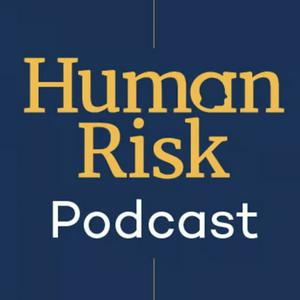
Get the free radio.net app
- Stations and podcasts to bookmark
- Stream via Wi-Fi or Bluetooth
- Supports Carplay & Android Auto
- Many other app features
Get the free radio.net app
- Stations and podcasts to bookmark
- Stream via Wi-Fi or Bluetooth
- Supports Carplay & Android Auto
- Many other app features


The Human Risk Podcast
Scan code,
download the app,
start listening.
download the app,
start listening.


